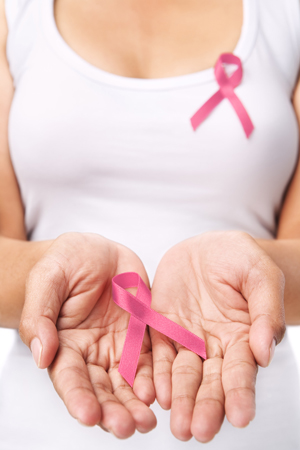Carson Tahoe Health will celebrate its 16th annual Think Pink breast cancer awareness campaign…
THiRTEEN Ways to THiNK PiNK

October is Breast Cancer Awareness Month!
Carson Tahoe Health and Red’s Old 395 Grill will once again host the THiNK PiNK breast cancer awareness kickoff party at Red’s on Wednesday, October 1st from 5-7 pm. The event is free to attend and individuals wearing a Carson Tahoe “Think Pink” t-shirt will receive free appetizers courtesy of Red’s Old 395 Grill. T-Shirts can be purchased for a $10 suggested donation at the event or at the Carson Tahoe Medical Campus. 100% of proceeds from all “Think Pink” t-shirt, bar and raffle sales will go to the Carson Tahoe Cancer Resource Center for cancer education and support. Click here for more information.
About 1 in 8 women will develop breast cancer at some point during her life. While you can’t change some risk factors—genetics and aging, for example—there are things you can do that may lower your breast cancer risk.
This is our 13th year of THiNK PiNK. So, here are 13 ways to THiNK PiNK and to help protect yourself against breast cancer.
13 Ways to THiNK PiNK:
1. Limit alcohol. The more alcohol you drink, the greater your risk of developing breast cancer. If you choose to drink alcohol — including beer, wine or liquor — limit yourself to no more than one drink a day.
2. Don’t smoke. Accumulating evidence suggests a link between smoking and breast cancer risk, particularly in premenopausal women. In addition, not smoking is one of the best things you can do for your overall health.
3. Control your weight. Being overweight or obese increases the risk of breast cancer. This is especially true if obesity occurs later in life, particularly after menopause.
4. Be physically active. Physical activity can help you maintain a healthy weight, which, in turn, helps prevent breast cancer. For most healthy adults, the Department of Health and Human Services recommends at least 150 minutes a week of moderate aerobic activity or 75 minutes of vigorous aerobic activity weekly, plus strength training at least twice a week.
5. Breastfeed. Breastfeeding may play a role in breast cancer prevention. The longer you breast-feed, the greater the protective effect.
6. Perform regular self-exams. Adult women of all ages are encouraged to perform breast self-exams at least once a month. 40% of diagnosed breast cancers are detected by women who feel a lump, so establishing a regular breast self-exam is very important. While mammograms can help you to detect cancer before you can feel a lump, breast self-exams help you to be familiar with how your breasts look and feel so you can alert your healthcare professional if there are any changes.
7. Get an annual mammogram. Mammograms don’t prevent breast cancer, but they can save lives by finding breast cancer as early as possible. For example, mammograms have been shown to lower the risk of dying from breast cancer by 35% in women over the age of 50.
8. Don’t forget your annual clinical breast exam. Breast exams are best performed soon after your menstrual period ends, because your breasts will not be as tender and swollen as during your period. This makes it easier to detect any unusual changes. If you have stopped menstruating, schedule the yearly exam on a day that’s easy for you to remember, such as your birthday.
9. Limit dose and duration of hormone therapy. Combination hormone therapy for more than three to five years increases the risk of breast cancer. If you’re taking hormone therapy for menopausal symptoms, ask your doctor about other options. You may be able to manage your symptoms with non-hormonal therapies, such as physical activity. If you decide that the benefits of short-term hormone therapy outweigh the risks, use the lowest dose that works for you.
10. Know your options if you have dense breast tissue. Women with dense breast tissue not only have a much higher risk of breast cancer, but mammograms may not be as effective in detecting certain types of cancer in these women. As a result, on January 1, 2014, the State of Nevada began requiring all mammography providers to notify women who have dense breast tissue, and to inform them of the various options available. Remember, mammography is still the gold standard in detecting breast cancers, even for women with dense breast tissue. However, you may benefit from additional screenings. Talk to your doctor to learn more about your options.
11. Get enough sleep. A study published in August 2012 showed an association between less sleep and development of aggressive forms of breast cancers in women. If you suffer from chronic sleep issues, work with your physician to find the underlying cause and treatment that’s right for you.
12. Keep a mug handy. Thanks to green tea’s wealth of free radical–busting antioxidants and other phytochemicals, it packs a handful of serious preventive powers—possibly including the ability to ward off breast cancer, according to early research published in The Journal of Nutrition. In fact, researchers found that when the healthy brew was consumed regularly over a period of several years, it could help reduce breast cancer risk by 40 percent. Start sipping!
13. Don’t go grill crazy. Attention, carnivores: Meat or fish that has been cooked at temps higher than 350°F—as is usually the case when food is grilled, panfried, broiled, or barbecued—can come with a nasty garnish. Extreme heat causes meat to produce chemicals called heterocyclic amines (HCAs), known carcinogens that, when frequently ingested, may damage human DNA and may lead to breast cancer. Try to limit your intake of grilled foods, and reach into your herb garden when making marinades—new research shows that the antioxidants in fresh rosemary might be able to counteract the ill effects of HCAs.
Sources:
http://www.mayoclinic.org/healthy-living/womens-health/in-depth/breast-cancer-prevention/art-20044676
http://www.nationalbreastcancer.org/breast-self-exam
http://www.breastcancer.org/symptoms/testing/types/mammograms/benefits_risks
http://www.womenshealthmag.com/health/prevent-breast-cancer



